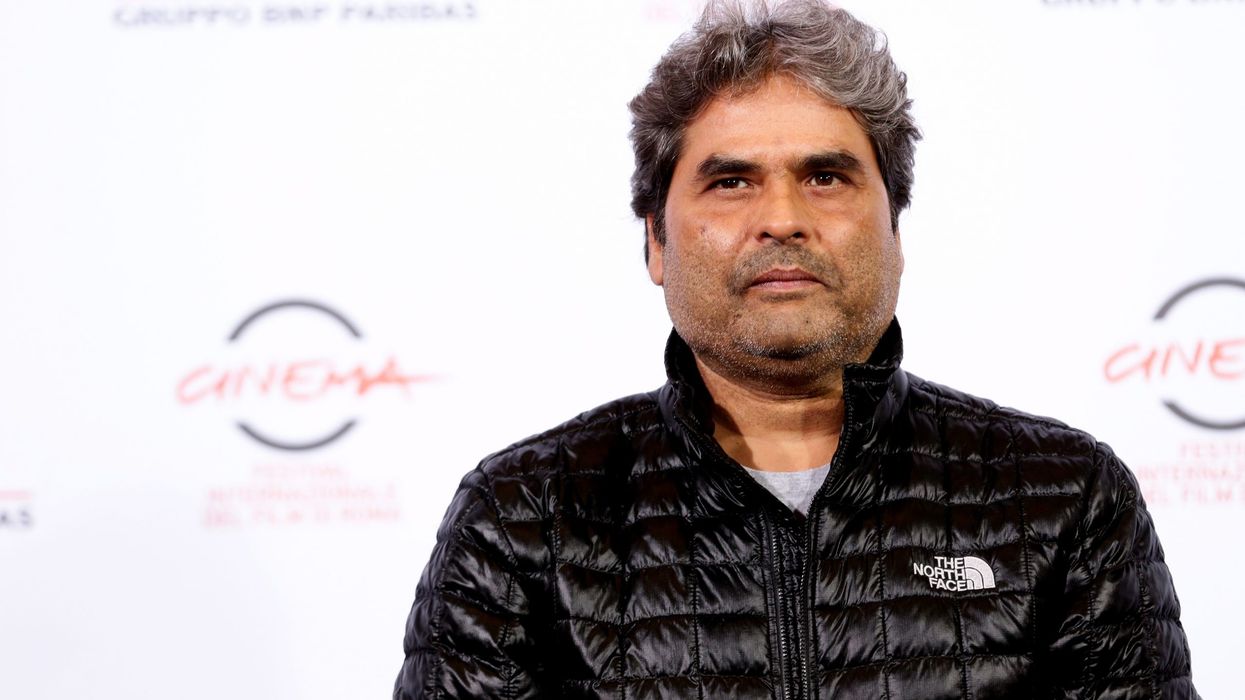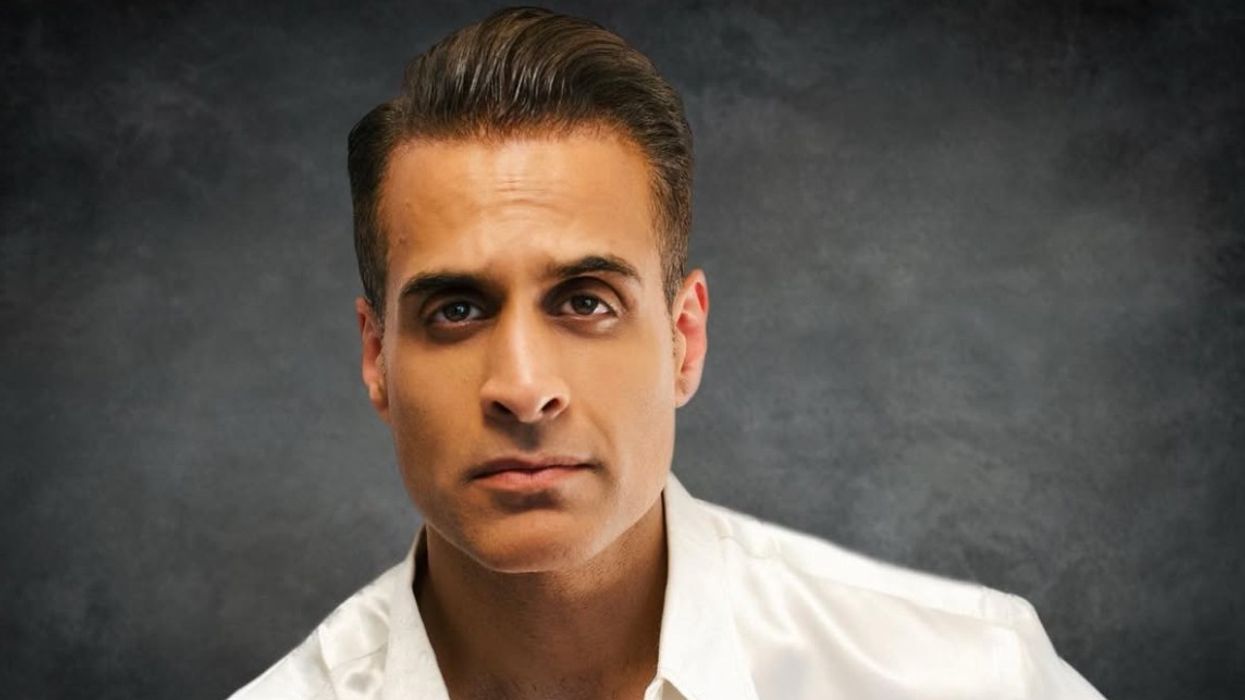National award-winning filmmaker Vishal Bhardwaj says he didn’t watch movies like The Kashmir Files and The Kerala Story as he wanted to stay out of such sensitive subjects.
Both The Kashmir Files (2022) and The Kerala Story (2023) were huge commercial hits but kicked up a political storm with many in the Opposition calling them propaganda films.
"I didn’t see The Kashmir Files, The Kerala Story and I didn't see them consciously. The kind of things I was hearing about these films, I didn’t want to get impacted by it. I was hearing that they are propaganda films from my friends and people I know...
"So, I just wanted to stay out of it because, for me, it is a very sensitive subject. If there’s so much negativity I want to remain out of this negativity, I love my peace. So, I didn’t want to see them,” the filmmaker, who won critical acclaim for depicting the Kashmir conflict in his Shahid Kapoor and Tabu-starrer Haider, told PTI in an interview.
The Kashmir Files, starring Anupam Kher, Darshan Kumar, Mithun Chakraborty, and Pallavi Joshi in major roles, revolved around the exodus of Kashmiri Pandits from the Valley in the 1990s. It was directed by Vivek Agnihotri.
The Kerala Story, helmed by Sudipto Sen, depicts how women from Kerala were forced to convert and recruited by the terror group Islamic State (IS).
Bhardwaj urged his fellow filmmakers to deal "sensitively" with stories that are inspired from real-life tragic incidents.
"I want my community of filmmakers to treat such stories sensitively and not use it as propaganda,” he added.
Asked whether the objective of filmmaking has changed over the years in Hindi cinema, the 58-year-old writer-director said it is bound to as society is also changing.
"Cinema is such a thing that you can use it the way you want. If people are accepting it and seeing it, then we should accept that people are changing. We are changing as a society," he added.
Citing numerous tragic lynching incidents that have occurred in the country, Bhardwaj said people now don't seem as affected by them as they would earlier.
"Did we ever think that we will get used to the news of lynching? Earlier, when it happened, we were like, ‘How can this mobocracy happen? How can some people gather and kill someone? Where is law enforcement? Where is the law?’ "Now, we are used to this. Now, it is like, ‘Lynching has happened here or there’. It doesn’t affect us because we are accepting it. We are not reacting to it anymore,” he said.






 Bollywood megastar and timeless dancing queen returns to captivate British audiencesGetty Images
Bollywood megastar and timeless dancing queen returns to captivate British audiencesGetty Images 










 Maid - Alex scrubs her way to survival one heart-breaking shift at a time
Maid - Alex scrubs her way to survival one heart-breaking shift at a time  I Am Not Okay With This - High school rage and telekinetic chaos, Sydney didn’t come to play
I Am Not Okay With This - High school rage and telekinetic chaos, Sydney didn’t come to play Terra Nova - Time-traveling to the past never looked this dino-dramatic
Terra Nova - Time-traveling to the past never looked this dino-dramatic Firefly—too cool for space, too good for this world
Firefly—too cool for space, too good for this world Freaks and Geeks - Teen angst, flannel shirts, and the birth of comedy legends
Freaks and Geeks - Teen angst, flannel shirts, and the birth of comedy legends
 Nick and Priyanka enjoy a quiet family momentInstagram/PriyankaChopra
Nick and Priyanka enjoy a quiet family momentInstagram/PriyankaChopra
 Chirag Rao brings the magic of Bollywood hits to life with a jazz twist in his upcoming Bollywood Bratpack concert
Chirag Rao brings the magic of Bollywood hits to life with a jazz twist in his upcoming Bollywood Bratpack concert Nazeem Hussain prepares to bring his unique comedic style to Leicester Square Theatre for his highly anticipated You Paid For This show
Nazeem Hussain prepares to bring his unique comedic style to Leicester Square Theatre for his highly anticipated You Paid For This show Jewel Thief – The Heist Begins: Despite a star-studded cast, this Netflix release is shaping up to be another disappointing addition to the streaming platform
Jewel Thief – The Heist Begins: Despite a star-studded cast, this Netflix release is shaping up to be another disappointing addition to the streaming platform Isabelle Kaif’s journey in Bollywood continues to be plagued by setbacks, with her upcoming film Suswagatam Khushamadeed facing an uncertain future
Isabelle Kaif’s journey in Bollywood continues to be plagued by setbacks, with her upcoming film Suswagatam Khushamadeed facing an uncertain future Abir Gulaal brings together Fawad Khan and Vaani Kapoor in a cross-border romantic comedy, offering a refreshing message of love and unity
Abir Gulaal brings together Fawad Khan and Vaani Kapoor in a cross-border romantic comedy, offering a refreshing message of love and unity Ambika Mod takes centre stage in Porn Play, an intriguing and thought-provoking production at the Royal Court, expected to be one of the year's most in-demand theatre events
Ambika Mod takes centre stage in Porn Play, an intriguing and thought-provoking production at the Royal Court, expected to be one of the year's most in-demand theatre events Emraan Hashmi hopes for a career revival with a sequel to Awarapan, but his recent track record leaves many confused about his comeback
Emraan Hashmi hopes for a career revival with a sequel to Awarapan, but his recent track record leaves many confused about his comeback